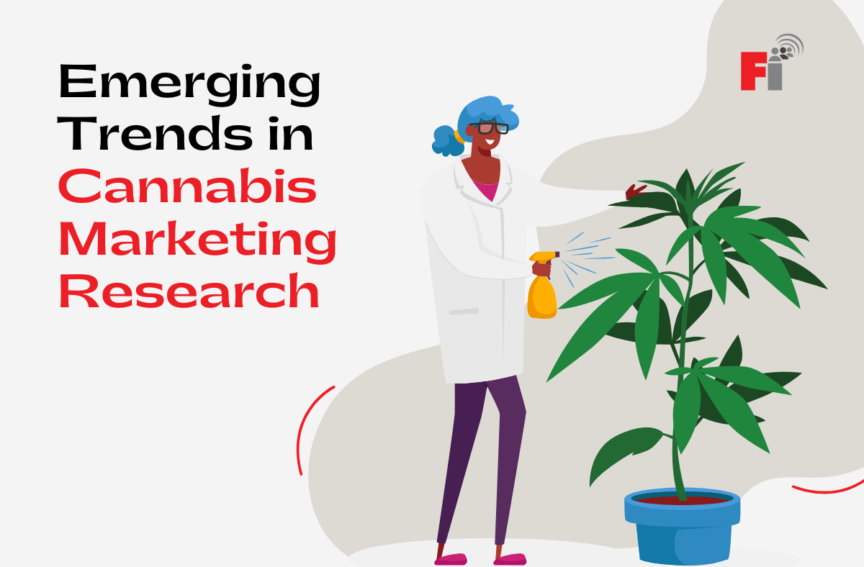In recent years, the cannabis industry has experienced a significant transformation. Once stigmatized and illegal in many parts of the world, cannabis is now a burgeoning sector driven by changing legal landscapes, medical advancements, and shifting consumer perceptions. As more countries and states legalize cannabis for medical and recreational use, understanding consumer behavior and the underlying research becomes paramount.
The Evolving Legal Landscape
The legalization of cannabis in various regions has paved the way for extensive research into its effects, benefits, and consumer behavior. Countries like Canada and Uruguay, along with numerous U.S. states, have legalized recreational cannabis, while many others have approved its medical use. This shift has opened doors for scientists to study cannabis without the previous legal constraints, leading to a more comprehensive understanding of the plant and its impact on consumers.
Medical Cannabis: Driving Research and Consumer Interest
Medical cannabis has been at the forefront of cannabis research. Studies have shown that cannabis can help manage chronic pain, reduce symptoms of epilepsy, alleviate nausea during chemotherapy, and assist with conditions like multiple sclerosis and PTSD. This growing body of evidence has led to increased consumer interest in medical cannabis products, ranging from CBD oils to edibles and topicals.
Recreational Use: A Diverse Consumer Base
The recreational cannabis market caters to a diverse group of consumers, each with unique preferences and behaviors. Understanding these behaviors is crucial for businesses aiming to capture and retain their target audience. Research indicates that recreational users fall into several categories, including:
1. Health-Conscious Consumers: These individuals seek cannabis products that offer relaxation, stress relief, and wellness benefits without the harmful effects associated with smoking.
2. Social Users: This group uses cannabis in social settings, much like alcohol. They prefer products that enhance social experiences, such as edibles, beverages, and vape pens.
3. Experienced Enthusiasts: Long-time users who are knowledgeable about different strains and consumption methods. They often seek high-quality products with specific cannabinoid profiles.
Factors Influencing Consumer Behavior
Several factors influence consumer behavior in the cannabis market:
1. Product Quality and Safety: With the increasing availability of cannabis products, consumers are becoming more discerning about quality and safety. They seek products that are lab-tested and free from harmful contaminants.
2. Brand Trust and Reputation: Brands that build trust through transparency, ethical practices, and consistent quality tend to attract and retain loyal customers.
3. Education and Information: Consumers are not just interested in Cannabis products; they are hungry for information. Brands that provide educational resources about strains, consumption methods, and effects are not only engaging their audience but also empowering them with knowledge. This emphasis on education is a key driver of consumer satisfaction and a sign of a mature and responsible industry.
4. Convenience and Accessibility: The convenience of purchasing cannabis products, whether through dispensaries or online platforms, plays a significant role in consumer behavior. Easy access and a seamless buying experience are key drivers of consumer satisfaction.
The Role of Technology in Cannabis Research and Consumption
Technology plays a pivotal role in advancing cannabis research and shaping consumer behavior. Innovations such as precision agriculture, blockchain for supply chain transparency, and AI-driven consumer insights are revolutionizing the industry. For instance, precision agriculture techniques enable growers to monitor and control environmental conditions, leading to higher yields and better quality. Blockchain technology ensures transparency and traceability in the supply chain, enhancing consumer trust. AI-driven consumer insights provide businesses with valuable data on consumer preferences and behaviors. Additionally, digital platforms and mobile apps provide consumers with personalized recommendations, dosage tracking, and access to a wealth of information, further influencing their consumption patterns.
Challenges and Opportunities
Despite the rapid growth and advancements in cannabis research, the industry faces several challenges. Regulatory inconsistencies between regions, such as varying laws on THC content and product labeling, can create barriers to market entry and hinder the growth of businesses. The stigma still associated with cannabis use and the need for more comprehensive long-term studies are also significant hurdles. However, these challenges also present opportunities for further research, advocacy, and education.
Conclusion
Cannabis research and consumer behavior are intricately linked in the evolving landscape of the cannabis industry. As legalization spreads and societal attitudes shift, understanding the nuances of consumer behavior and continuing rigorous research will be essential for the industry’s sustainable growth. Businesses can thrive in this dynamic market by prioritizing quality, education, and consumer trust. For instance, they can ensure the quality of their products through rigorous testing and transparent labeling, provide educational resources about strains and consumption methods, and build consumer trust through ethical practices and consistent quality. By meeting the diverse needs of medical and recreational users, these businesses can contribute to the positive evolution of the cannabis industry.
Let's Get Your Project Started
If you’re looking for a reliable partner to find the right participants for your study, we at Focus Insite are ready to assist you. Contact us at bids@focusinsite.com, and let’s ensure your research is conducted with the ideal respondents.


